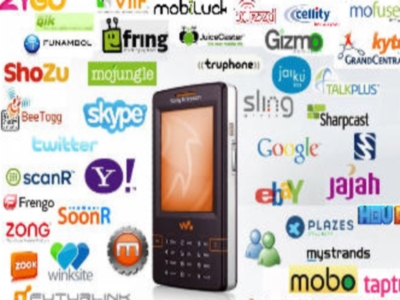Gerry Griffin of Skill-Pill M-Learning considers why mobile learning is creating a quiet revolution in the way we develop content for learners.
We continuously face new challenges in training, not just technical and knowledge-based training but also in the more complex skills, attitudes and behavioural training. One of the challenges we face is to understand and apply mobile learning in our programs.
Mobile learning is about flexible content being made available to the learner in a format and location and at a time of their choosing, not ours. Our newest employees prefer and excel at this kind of approach.
This is not just an evolution; it is a revolution in the style of learning we have designed and developed for our programs for in the past.
But this revolution in style also revolutionises our content to better suit the learner of today. Learners are beset with information overload and more demands than ever on their productive time. This is creating a real problem for traditional training interventions, because learners cannot give up time for traditional training and are finding it harder to store and retrieve knowledge and past training.
 "The employees of today are actually shifting their style of learning (both formal and informal). The responsibility for deciding how, when and what someone learns, is shifting from employers to the employees themselves."
"The employees of today are actually shifting their style of learning (both formal and informal). The responsibility for deciding how, when and what someone learns, is shifting from employers to the employees themselves."The employees of today are actually shifting their style of learning (both formal and informal). The responsibility for deciding how, when and what someone learns, is shifting from employers to the employees themselves. This shift has two interesting aspects.
Firstly, learners want learning to be more integrated into their daily lives and the workplace – much closer to the learner than in the past.
And secondly, they also prefer it to be on-demand and available when they need it, with no planning or organisation to receive it, not requiring scheduling months in advance. That also indicates learning should not be days or even hours long but broken down into 'nano' blocks of learning.
These two elements combined can be called the 'google effect':
"I, the learner, determine when and where I receive the learning and it has to be organised in a style that appeals to me and in much shorter segments so I can: complete the learning right before I need it (the event), and can hold the main topics in my head so I can use the learning successfully."
Getting learning more integrated means not just locked up and away in a classroom or even limited to a computer, but making sure it's available on their devices such as iPhones/iPads, BlackBerrys, Android and Windows-based smartphones and laptops.
This availability of the information (learning segments), all of the time, is crucial for empowering and motivating users as to when, where, and how they 'consume' their learning.
The more motivated the learner is the higher level of use, retention, and actual application of the learning – this is our learning goal.
And the idea of the training separated by an extended period of time from the 'event', when the person actually attempts to use the learning, has to be challenged. Few people want the information weeks or even months in advance. They would like to have specific top-of-mind and refresher learning on-demand minutes or even seconds before they will need to use it.
For example: think of hearing a term in a meeting that you do not recognise. If you could Google/Wiki the word, understand the meaning and then even be able to use it in the next few minutes in the meeting, getting instant feedback about if you used it correctly or not; that would be an incredibly efficient form of learning.
Shorter segments mean breaking down the training radically beyond the eight-hour classroom 'campus style' and even past the idea of learners taking an hour 'block' out of their workflow. In fact, we have to move past the '15 Minute' learning segment down, into segments as focused as 2 to 3 minutes long (nano-learning).
This 'street view' or 'flash learning' departs quite dramatically from the 'learn them and leave them' style of the campus approach we have strictly followed in the past.
"But that won't work for my training!" you might be hearing yourself say. Our material is much more complex than just two-minute long learning segments. But is it really?
Is all of our material so complex that we need to separate out our learners, months in advance, take them away from their work for hours or days at a time, and inundate them relentlessly with information that they may or may not need in the following twelve months for their work, hoping they remember enough to complete the task?
"We must develop the ability and experience to define highly-focused learning objects and fine-tune them into valuable segments or bundles as small as two minutes."
Even if our material is complex, the 'google effect' highlights one of the impacts of mobile learning on even the non-mobile learning we are creating for the future; we must develop the ability and experience to define highly-focused learning objects and fine-tune them into valuable segments or bundles as small as two minutes.
This sharpening of style and content will fundamentally impact our computer-based and face-to-face training. It should make all of our training more usable, flexible and user-friendly. Who would not want that?
Even if only 10% of our knowledge-based training shifted to a mobile learning structure in the near-term, the impact on the design and development of our courseware would be tremendously valuable in ensuring our content was more integrated and available in the workplace - a more 'street view' approach to learning.
Gerry Griffin is director of Skill-Pill M-Learning. Gerry is a former director of the London Business School and author of six business books. A frequent TV commentator on Web developments, he has lectured in the U.S., Europe, Asia, and Africa. Gerry founded Skill-Pill in 2006, and is passionate about the impact m-learning can have in supporting people in the workplace










